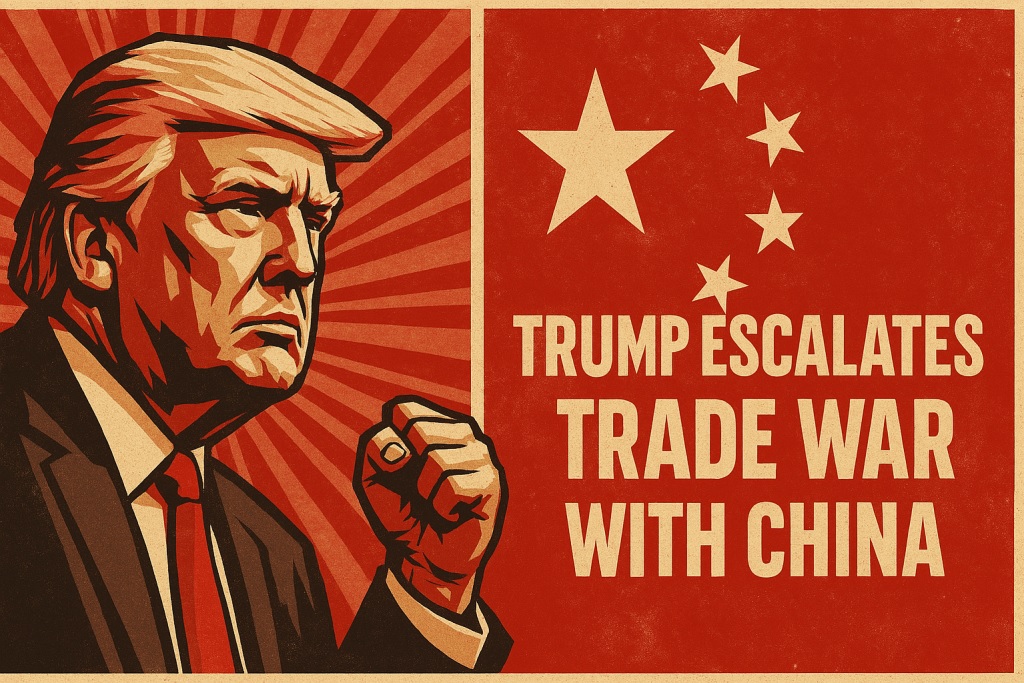In a move that has sent shockwaves through global markets, U.S. President Donald Trump has announced a massive 104% tariff on all Chinese imports, marking a significant escalation in the ongoing trade war. The decision comes as a retaliatory measure against China’s refusal to withdraw its own counter-tariff plans.
The Trump administration had earlier imposed a 34% tariff on Chinese goods under its “reciprocal tariffs” strategy. However, the latest decision to tack on an additional 70% has pushed the total tariff rate to a staggering 104%, sparking fears of global economic instability.
Global stock markets reacted negatively to the announcement, with major indices like the S&P 500 and Nasdaq experiencing sharp declines. Financial experts warn the tariffs could lead to significant disruptions in the global supply chain and heightened consumer prices in the U.S.
Must Read:
US Tariffs Could Trigger iPhone Price Hike: Apple Faces $267 Cost Surge per Device
China’s government swiftly condemned the move, calling it “a mistake upon a mistake” and pledged to respond forcefully. In a statement, the Chinese Ministry of Commerce stated, “We do not provoke trouble, but we will not shy away from it,” and announced plans to retaliate by targeting U.S. agricultural exports including soybeans, sorghum, and poultry.
Beijing is also expected to implement new restrictions on American companies operating in China, particularly in the legal, consultancy, and technology sectors.
Economic analysts predict that the new tariffs will not only strain bilateral relations but also put additional pressure on American consumers already struggling with inflation. Price hikes on everyday goods and disruptions in business operations are expected to be among the immediate consequences.




